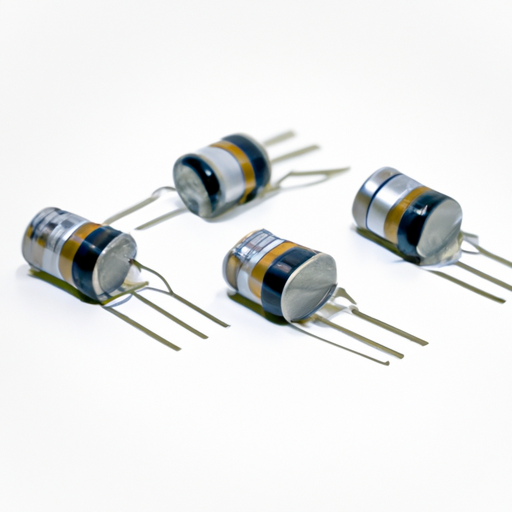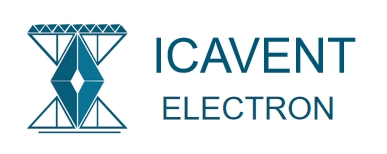When Will the New Series Capacitor Be Released?

I. Introduction
In the realm of electrical engineering, capacitors play a pivotal role in the functionality and efficiency of various systems. Among these, series capacitors are particularly significant, serving essential functions in power systems and electronic devices. This article aims to inform readers about the anticipated release of new series capacitors, exploring their importance, current developments, and the implications of their introduction into the market.
II. Background on Series Capacitors
A. Explanation of How Series Capacitors Work
At its core, a capacitor is a device that stores electrical energy in an electric field. When capacitors are connected in series, the total capacitance decreases, which can be advantageous in specific applications. The basic principle of capacitance involves the ability of a capacitor to store charge, which is influenced by the surface area of the plates, the distance between them, and the dielectric material used.
In power systems, series capacitors are employed to improve the transmission of electrical energy. They help to increase the power factor, reduce losses, and enhance voltage stability. In electronics, they are used in timing circuits, filters, and energy storage applications.
B. Current Applications of Series Capacitors
Series capacitors find their applications in various domains:
1. **Power Factor Correction**: By compensating for inductive loads, series capacitors help improve the power factor, leading to more efficient energy use.
2. **Voltage Regulation**: They stabilize voltage levels in transmission lines, ensuring that electrical devices receive a consistent voltage supply.
3. **Energy Storage**: In renewable energy systems, series capacitors can store energy generated from sources like solar and wind, releasing it when needed.
III. The Need for New Series Capacitors
A. Limitations of Existing Series Capacitors
Despite their advantages, existing series capacitors face several limitations:
1. **Performance Issues**: Traditional series capacitors may not perform optimally under varying load conditions, leading to inefficiencies.
2. **Size and Weight Constraints**: Many current designs are bulky and heavy, making them less suitable for modern applications that demand compactness.
3. **Cost Considerations**: The manufacturing costs of high-performance capacitors can be prohibitive, limiting their widespread adoption.
B. Technological Advancements Driving the Need for New Designs
The demand for new series capacitors is being driven by several technological advancements:
1. **Increased Demand for Energy Efficiency**: As industries strive for greater energy efficiency, the need for capacitors that can operate effectively in diverse conditions has become paramount.
2. **Integration with Renewable Energy Sources**: The rise of renewable energy necessitates capacitors that can handle variable energy inputs and outputs.
3. **Miniaturization Trends in Electronics**: The push for smaller, lighter electronic devices requires capacitors that can deliver high performance without occupying significant space.
IV. Current Developments in Series Capacitor Technology
A. Overview of Research and Development Efforts
The landscape of series capacitor technology is evolving rapidly, with numerous research and development initiatives underway. Key players in the industry, including established manufacturers and innovative startups, are exploring new materials and designs to enhance capacitor performance.
B. Case Studies of Recent Advancements
Recent advancements in series capacitor technology include:
1. **Prototypes and Pilot Projects**: Several companies have developed prototypes that utilize advanced materials, such as graphene and nanocomposites, to improve capacitance and reduce size.
2. **Collaborations Between Academia and Industry**: Partnerships between universities and industry leaders are fostering innovation, leading to breakthroughs in capacitor design and functionality.
V. Anticipated Release Timeline
A. Factors Influencing the Release Schedule
The timeline for the release of new series capacitors is influenced by several factors:
1. **Research and Development Timelines**: The complexity of developing new technologies can lead to extended R&D periods.
2. **Regulatory Approvals and Testing**: New products must undergo rigorous testing and obtain regulatory approvals, which can delay their market introduction.
3. **Market Demand and Competition**: The competitive landscape and demand for advanced capacitors can accelerate or slow down the release process.
B. Expert Predictions on Release Dates
Industry analysts and manufacturers have provided insights into the anticipated release dates for new series capacitors. While some experts predict that we may see commercial products within the next 1-2 years, others suggest that widespread adoption may take longer, depending on the factors mentioned above.
VI. Implications of New Series Capacitors
A. Potential Impact on Various Industries
The introduction of new series capacitors is expected to have significant implications across various industries:
1. **Electrical Utilities**: Improved capacitors can enhance grid stability and efficiency, leading to lower operational costs and improved service reliability.
2. **Consumer Electronics**: Smaller, more efficient capacitors can enable the development of advanced electronic devices with longer battery life and better performance.
3. **Automotive Sector**: As electric vehicles become more prevalent, the need for efficient energy storage solutions will drive demand for advanced series capacitors.
B. Benefits of Adopting New Series Capacitors
The adoption of new series capacitors offers several benefits:
1. **Improved Efficiency and Performance**: Enhanced designs can lead to better energy management and reduced losses in electrical systems.
2. **Cost Savings Over Time**: While initial costs may be higher, the long-term savings from improved efficiency can offset these expenses.
3. **Environmental Benefits**: By enabling more efficient energy use and supporting renewable energy integration, new series capacitors can contribute to sustainability efforts.
VII. Conclusion
In summary, series capacitors are vital components in modern electrical systems, playing crucial roles in power factor correction, voltage regulation, and energy storage. The anticipated release of new series capacitors promises to address the limitations of existing technologies, driven by advancements in materials and design. As industries prepare for these innovations, staying informed about developments in capacitor technology will be essential for harnessing their full potential.
VIII. References
For further reading on series capacitors and their applications, consider exploring the following sources:
1. IEEE Transactions on Power Electronics
2. Journal of Electrical Engineering & Technology
3. Industry reports from leading capacitor manufacturers
4. Research papers from academic institutions focusing on capacitor technology
By understanding the significance of series capacitors and the factors influencing their release, readers can better appreciate the advancements in electrical engineering and their implications for the future.
When Will the New Series Capacitor Be Released?

I. Introduction
In the realm of electrical engineering, capacitors play a pivotal role in the functionality and efficiency of various systems. Among these, series capacitors are particularly significant, serving essential functions in power systems and electronic devices. This article aims to inform readers about the anticipated release of new series capacitors, exploring their importance, current developments, and the implications of their introduction into the market.
II. Background on Series Capacitors
A. Explanation of How Series Capacitors Work
At its core, a capacitor is a device that stores electrical energy in an electric field. When capacitors are connected in series, the total capacitance decreases, which can be advantageous in specific applications. The basic principle of capacitance involves the ability of a capacitor to store charge, which is influenced by the surface area of the plates, the distance between them, and the dielectric material used.
In power systems, series capacitors are employed to improve the transmission of electrical energy. They help to increase the power factor, reduce losses, and enhance voltage stability. In electronics, they are used in timing circuits, filters, and energy storage applications.
B. Current Applications of Series Capacitors
Series capacitors find their applications in various domains:
1. **Power Factor Correction**: By compensating for inductive loads, series capacitors help improve the power factor, leading to more efficient energy use.
2. **Voltage Regulation**: They stabilize voltage levels in transmission lines, ensuring that electrical devices receive a consistent voltage supply.
3. **Energy Storage**: In renewable energy systems, series capacitors can store energy generated from sources like solar and wind, releasing it when needed.
III. The Need for New Series Capacitors
A. Limitations of Existing Series Capacitors
Despite their advantages, existing series capacitors face several limitations:
1. **Performance Issues**: Traditional series capacitors may not perform optimally under varying load conditions, leading to inefficiencies.
2. **Size and Weight Constraints**: Many current designs are bulky and heavy, making them less suitable for modern applications that demand compactness.
3. **Cost Considerations**: The manufacturing costs of high-performance capacitors can be prohibitive, limiting their widespread adoption.
B. Technological Advancements Driving the Need for New Designs
The demand for new series capacitors is being driven by several technological advancements:
1. **Increased Demand for Energy Efficiency**: As industries strive for greater energy efficiency, the need for capacitors that can operate effectively in diverse conditions has become paramount.
2. **Integration with Renewable Energy Sources**: The rise of renewable energy necessitates capacitors that can handle variable energy inputs and outputs.
3. **Miniaturization Trends in Electronics**: The push for smaller, lighter electronic devices requires capacitors that can deliver high performance without occupying significant space.
IV. Current Developments in Series Capacitor Technology
A. Overview of Research and Development Efforts
The landscape of series capacitor technology is evolving rapidly, with numerous research and development initiatives underway. Key players in the industry, including established manufacturers and innovative startups, are exploring new materials and designs to enhance capacitor performance.
B. Case Studies of Recent Advancements
Recent advancements in series capacitor technology include:
1. **Prototypes and Pilot Projects**: Several companies have developed prototypes that utilize advanced materials, such as graphene and nanocomposites, to improve capacitance and reduce size.
2. **Collaborations Between Academia and Industry**: Partnerships between universities and industry leaders are fostering innovation, leading to breakthroughs in capacitor design and functionality.
V. Anticipated Release Timeline
A. Factors Influencing the Release Schedule
The timeline for the release of new series capacitors is influenced by several factors:
1. **Research and Development Timelines**: The complexity of developing new technologies can lead to extended R&D periods.
2. **Regulatory Approvals and Testing**: New products must undergo rigorous testing and obtain regulatory approvals, which can delay their market introduction.
3. **Market Demand and Competition**: The competitive landscape and demand for advanced capacitors can accelerate or slow down the release process.
B. Expert Predictions on Release Dates
Industry analysts and manufacturers have provided insights into the anticipated release dates for new series capacitors. While some experts predict that we may see commercial products within the next 1-2 years, others suggest that widespread adoption may take longer, depending on the factors mentioned above.
VI. Implications of New Series Capacitors
A. Potential Impact on Various Industries
The introduction of new series capacitors is expected to have significant implications across various industries:
1. **Electrical Utilities**: Improved capacitors can enhance grid stability and efficiency, leading to lower operational costs and improved service reliability.
2. **Consumer Electronics**: Smaller, more efficient capacitors can enable the development of advanced electronic devices with longer battery life and better performance.
3. **Automotive Sector**: As electric vehicles become more prevalent, the need for efficient energy storage solutions will drive demand for advanced series capacitors.
B. Benefits of Adopting New Series Capacitors
The adoption of new series capacitors offers several benefits:
1. **Improved Efficiency and Performance**: Enhanced designs can lead to better energy management and reduced losses in electrical systems.
2. **Cost Savings Over Time**: While initial costs may be higher, the long-term savings from improved efficiency can offset these expenses.
3. **Environmental Benefits**: By enabling more efficient energy use and supporting renewable energy integration, new series capacitors can contribute to sustainability efforts.
VII. Conclusion
In summary, series capacitors are vital components in modern electrical systems, playing crucial roles in power factor correction, voltage regulation, and energy storage. The anticipated release of new series capacitors promises to address the limitations of existing technologies, driven by advancements in materials and design. As industries prepare for these innovations, staying informed about developments in capacitor technology will be essential for harnessing their full potential.
VIII. References
For further reading on series capacitors and their applications, consider exploring the following sources:
1. IEEE Transactions on Power Electronics
2. Journal of Electrical Engineering & Technology
3. Industry reports from leading capacitor manufacturers
4. Research papers from academic institutions focusing on capacitor technology
By understanding the significance of series capacitors and the factors influencing their release, readers can better appreciate the advancements in electrical engineering and their implications for the future.













